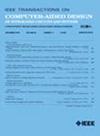MII: A Multifaceted Framework for Intermittence-Aware Inference and Scheduling
IF 2.7
3区 计算机科学
Q2 COMPUTER SCIENCE, HARDWARE & ARCHITECTURE
IEEE Transactions on Computer-Aided Design of Integrated Circuits and Systems
Pub Date : 2024-11-06
DOI:10.1109/TCAD.2024.3443710
引用次数: 0
Abstract
The concurrent execution of deep neural networks (DNNs) inference tasks on the intermittently-powered batteryless devices (IPDs) has recently garnered much attention due to its potential in a broad range of smart sensing applications. While the checkpointing mechanisms (CMs) provided by the state-of-the-art make this possible, scheduling inference tasks on IPDs is still a complex problem due to significant performance variations across the DNN layers and CM choices. This complexity is further accentuated by dynamic environmental conditions and inherent resource constraints of IPDs. To tackle these challenges, we present MII, a framework designed for the intermittence-aware inference and scheduling on IPDs. MII formulates the shutdown and live time functions of an IPD from profiling the data, which our offline intermittence-aware search scheme uses to find the optimal layer-wise CMs for each task. At runtime, MII enhances the job success rates by dynamically making scheduling decisions to mitigate the workload losses from the power interruptions and adjusting these CMs in response to the actual energy patterns. Our evaluation demonstrates the superiority of MII over the state-of-the-art. In controlled environments, MII achieves an average increase of 21% and 39% in successful jobs under the stable and dynamic energy patterns. In the real-world settings, MII achieves 33% and 24% more successful jobs indoors and outdoors.MII:间歇感知推理和调度的多元框架
在间歇供电的无电池设备(IPD)上并发执行深度神经网络(DNN)推理任务,因其在广泛的智能传感应用中的潜力而最近备受关注。虽然最先进的检查点机制(CM)使其成为可能,但由于 DNN 各层和 CM 选择之间存在显著的性能差异,在 IPD 上调度推理任务仍然是一个复杂的问题。动态环境条件和 IPD 固有的资源限制进一步加剧了这一复杂性。为了应对这些挑战,我们提出了 MII,一个为 IPD 的间歇感知推理和调度而设计的框架。MII 通过对数据的剖析来制定 IPD 的关机和运行时间函数,我们的离线间歇感知搜索方案利用这些函数来为每个任务找到最优的层级 CM。在运行时,MII 通过动态调度决策来减轻电力中断造成的工作负载损失,并根据实际能源模式调整这些 CM,从而提高任务成功率。我们的评估表明,MII 优于最先进的技术。在受控环境中,MII 在稳定和动态能源模式下的成功作业分别平均增加了 21% 和 39%。在实际环境中,MII 在室内和室外的成功率分别提高了 33% 和 24%。
本文章由计算机程序翻译,如有差异,请以英文原文为准。
求助全文
约1分钟内获得全文
求助全文
来源期刊
CiteScore
5.60
自引率
13.80%
发文量
500
审稿时长
7 months
期刊介绍:
The purpose of this Transactions is to publish papers of interest to individuals in the area of computer-aided design of integrated circuits and systems composed of analog, digital, mixed-signal, optical, or microwave components. The aids include methods, models, algorithms, and man-machine interfaces for system-level, physical and logical design including: planning, synthesis, partitioning, modeling, simulation, layout, verification, testing, hardware-software co-design and documentation of integrated circuit and system designs of all complexities. Design tools and techniques for evaluating and designing integrated circuits and systems for metrics such as performance, power, reliability, testability, and security are a focus.

 求助内容:
求助内容: 应助结果提醒方式:
应助结果提醒方式:


